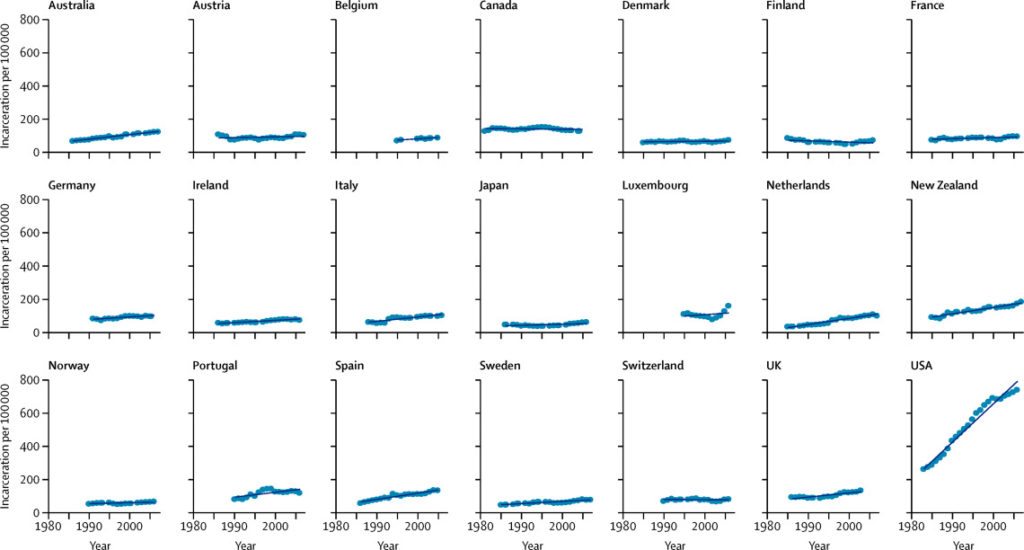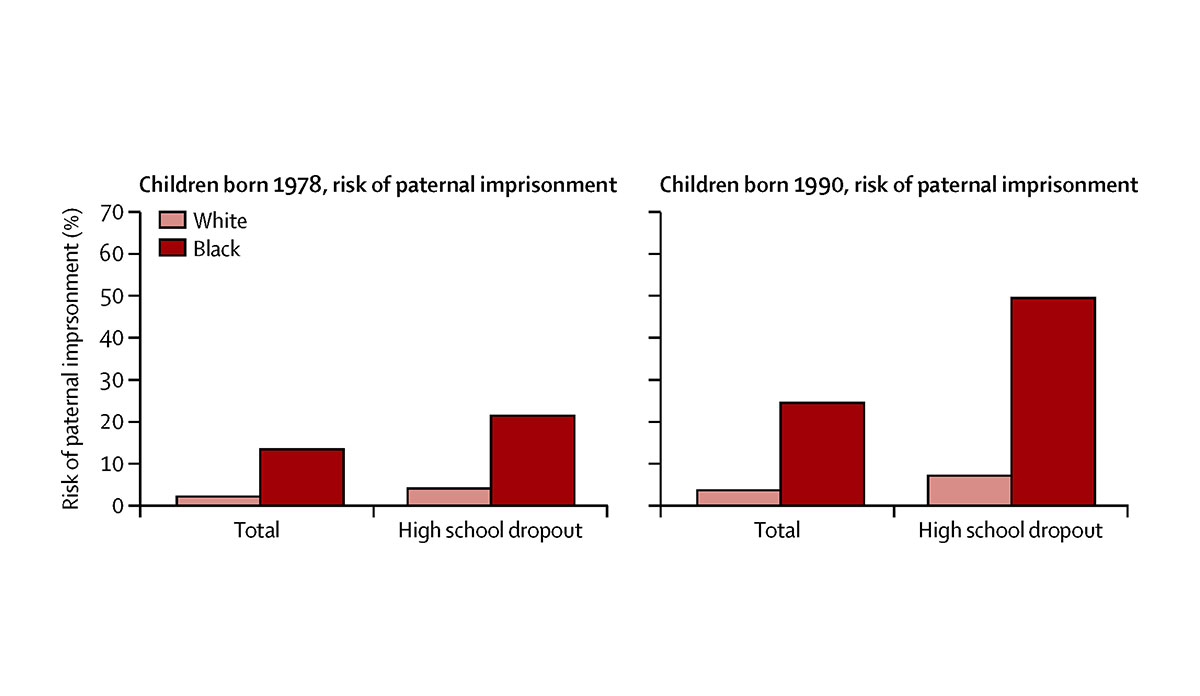The United States is the world leader in the number of incarcerated people with more than 2.3 million in prison. About every 666 out of 100,000 Americans are incarcerated. As shown in the chart below, New Zealand has the the second highest rate of incarceration among high-income countries at 173 per 100,000. The U.S. prison population was not abnormally high prior to the 1970s, which is when a series of policy reforms triggered a dramatic spike. These “tough on crime” policies emphasized mandatory sentencing requirements for non-violent drug-related crimes.

Christopher Wilderman and Emily Wang conducted a comprehensive review of peer-reviewed articles and government reports on the health impacts of incarceration for individuals, families, and communities. They were particularly interested in documenting the ways in which incarceration disproportionately affects black communities in the U.S. compared to other high-income countries. The results are striking. For example, 2.8% of white men born in the late 1960s had spent time in prison by their 30s. By contrast, 20.3% of black men born in the same time period had served prison time. As shown in the bar graph above, black children born in 1990 had a 25.1% chance that their father was incarcerated compared to less than 10% of white children. The chance of incarceration was double for black fathers who did not finish high school (50.5%). The authors note that the statistics are an underestimate as they only account for people in prisons, not local jails. There is no source of aggregated data in the U.S. for both prisons and jails.
Wilderman and Wang reasoned that if incarceration does influence the health of families and communities, then black families and communities will be most affected. Incarceration results in fewer financial contributors, potentially less time to spend on health-related activities, and interrupted relationships. Previous studies have demonstrated a link between elevated infant mortality and paternal incarceration. Paternal incarceration has also been linked to behavioral and mental health problems for the children, including higher risk for substance misuse.
Databyte via Christopher Wildeman and Emily A Wang, Mass Incarceration, Public Health, and Widening Inequality in the USA. The Lancet.













